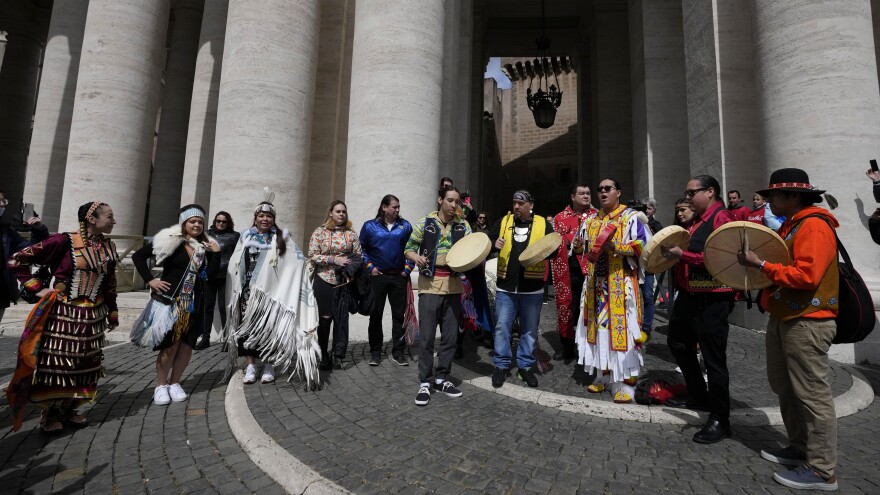Updated April 1, 2022 at 11:58 AM ET
After a visit with delegations from Indigenous leaders of the First Nations, Inuit and Métis this week, Pope Francis has issued an apology for the actions of some members of the Catholic Church in Canada's residential schools.
On Friday, the pope said he felt "sorrow and shame" for how Indigenous people were treated in Canada. The papal apology comes months after the remains of hundreds of children were found on the grounds of former residential schools in Canada. Canada's Truth and Reconciliation Commission have said the forced assimilation and treatment of Indigenous people in the schools amounted to cultural genocide. The commission has documented thousands of Indigenous children who died at these schools.
"For the deplorable conduct of those members of the Catholic Church, I ask for God's forgiveness and I want to say to you with all my heart: I am very sorry. And I join my brothers, the Canadian bishops, in asking your pardon," the pope said.
Natan Obed, president of the Inuit Tapiriit Kanatami, said Friday in a news conference that the apology was "long overdue," though noted it was delivered in an empathetic and caring way.
"Today we have a piece of the puzzle. There is much more to do and so an apology is part of a larger picture," Obed said.
Cassidy Caron, president of the Métis National Council, said, "We feel heard and we feel listened to."
"This opens a door for us to continue on our healing journeys, and it opens a door for us to continue to fight for action."
Earlier this week, Pope Francis had meetings with the Indigenous leaders as well as survivors of the residential schools in Canada, who traveled to the Vatican to demand an apology. The meetings were supposed to take place last December but were delayed due to the pandemic.
Last June, after hundreds of remains were discovered, Pope Francis expressed "sorrow" but did not apologize. Friday, he said he hoped they can work together toward truth and reconciliation.
"Listening to your voices, I was able to enter into and be deeply grieved by the stories of the suffering, hardship, discrimination and various forms of abuse that some of you experienced, particularly in the residential schools," Pope Francis said.
"It is chilling to think of determined efforts to instill a sense of inferiority, to rob people of their cultural identity, to sever their roots, and to consider all the personal and social effects that this continues to entail: unresolved traumas that have become intergenerational traumas."
Pope Francis also said he would visit Canada.
Copyright 2022 NPR. To see more, visit https://www.npr.org.




